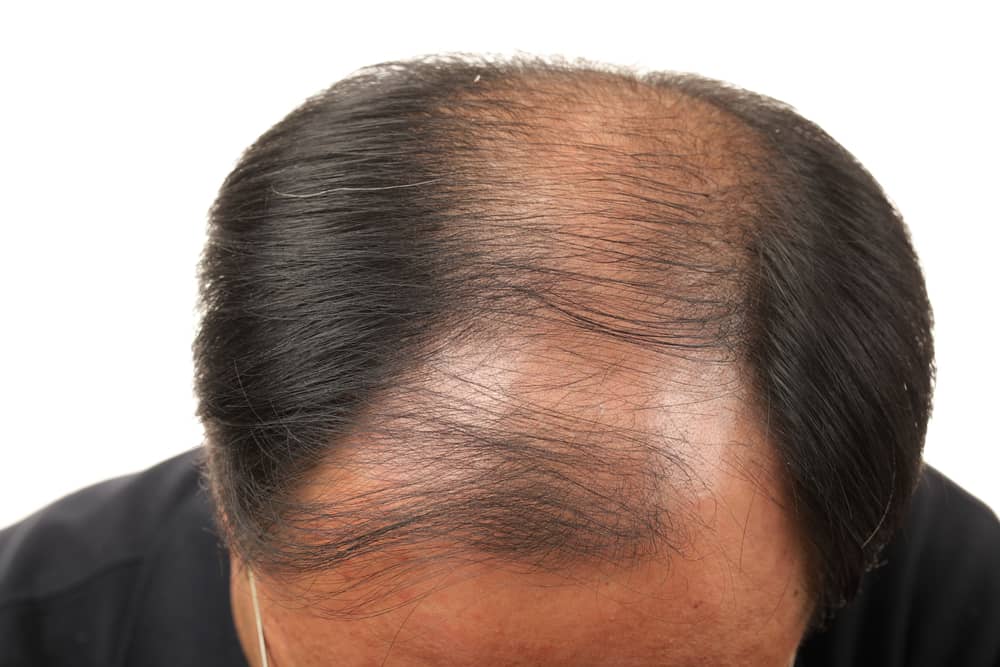Contents:
- Medical Video: LangHe Medical - CircCurer - Disposable Circumcision Suture Device - 2nd generation-Adult
- 1. Caring for baby's skin in a natural way
- 2. Do not bathe the baby too often
- 3. Avoid care products that contain fragrances or chemicals
- 4. Frequently change baby diapers
- 5. Keep baby's skin moist
- 6. Take care of baby's skin from the sun
Medical Video: LangHe Medical - CircCurer - Disposable Circumcision Suture Device - 2nd generation-Adult
Baby skin is different from adult skin because it is more sensitive than adult skin. So, baby skin care must be truly considered and should not be confused with treatments for adult skin. Then, how to take care of good baby skin? What can and cannot be done in caring for baby's skin?
1. Caring for baby's skin in a natural way
You simply treat baby's skin in a natural and simple way. The actual baby's skin does not require various treatments. In fact, too much exposure to baby's skin with chemicals can bring problems to the baby's skin.
In the early days after the baby is born, the baby's skin may look wrinkled and covered with soft white matter called vernix. However, you do not need to worry because the wrinkled baby's skin will eventually release itself. You may not need to apply oil or cream to help release it.
2. Do not bathe the baby too often
Too often bathing can actually remove natural oils that protect baby's skin. This can cause the baby's skin to dry up so that it easily becomes irritated. Therefore, it's best not to bathe the baby too often, just three times per week, as reported by WebMD. Or, it could be more than this to remove dirt or bacteria that sticks to baby's skin, depending on the weather, humidity, and how active your baby is.
In addition, baby's skin also does not need to be washed with scented soap while bathing. Fragrances or chemicals contained in soap can actually cause problems in the baby's skin, especially if the baby's skin is sensitive. Preferably, choose special baby soap that does not contain fragrance.
3. Avoid care products that contain fragrances or chemicals
Besides soap, other skin care products, such as shampoos and fragrances, which contain fragrances and chemicals should also be avoided. This can cause problems in the baby's skin, such as rashes, dryness, irritation, and itching. Also, it can cause allergies or asthma in infants. Also avoid using detergents that contain perfumes to wash baby clothes, especially if the baby's skin is sensitive.
4. Frequently change baby diapers
Newborns will wet the diaper more often, maybe almost every hour. However, don't be lazy to change wet baby diapers. Don't let the baby wear wet diapers for too long. This can cause diaper rash. Diaper rash can also be caused when the baby's bottom is not completely dry after rinsing or before using a diaper.
Therefore, you should rinse the baby's ass properly and dry it properly. Also, it is not recommended to use baby tissue to wipe the baby's bottom or use powder before using the diaper. The baby's bottom is cleaned with clean water and a dry towel. If the baby's bottom is too dry, you can apply a special cream to the baby's bottom to moisturize it.
5. Keep baby's skin moist
Moist baby skin can prevent the baby from irritation, rashes, and itching on the skin. For that, you should always apply lotion, oil, or petroleum jelly specifically to the baby's skin to keep the skin moist.
Also give a soothing touch to the baby's skin, such as hugging, caressing, and massaging it. Besides being soothing, this touch can also make the baby sleep better and increase the baby's immunity so that it helps the baby fight disease.
6. Take care of baby's skin from the sun
When you want to take your baby out during the day, make sure the baby's skin is not exposed to direct sunlight. Babies can overheat, experience a rash, and their skin can burn if long exposure to sunlight. You can wear clothes and loose trousers, a hat, and baby gloves and socks. In addition, you can also apply sunscreen to baby's skin 30 minutes before the baby leaves the house.












